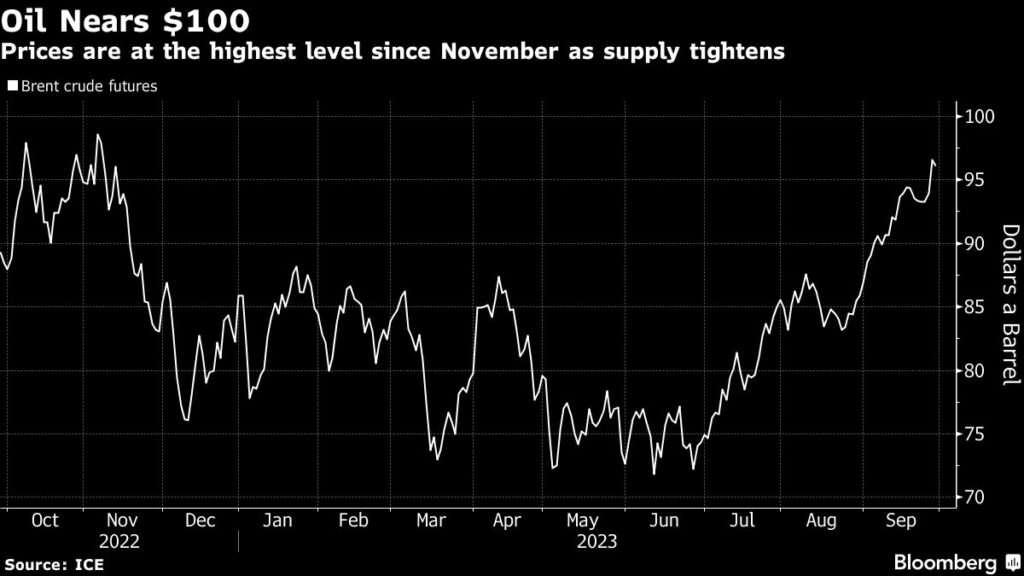(Bloomberg) — At the biggest Middle Eastern energy conference this week, oil won’t be top of the agenda.
Most Read from Bloomberg
Ministers and business chiefs will gather in Abu Dhabi for the Adipec summit, an annual gathering where oil investment, production and markets have been dominant topics in the forum’s long-running history. This time around, climate is likely to take over.
The conference — touted as “Decarbonising, Faster, Together” — is taking place just two months ahead of COP28, the United Nations’ flagship climate event that also will be held in the United Arab Emirates. The country’s role as host is forcing it to strike a difficult balance: pursuing its own ambitious oil growth while rallying countries around sweeping global plans to cut emissions.
Also Read: A Kingdom Built on Oil Now Controls the World’s Climate Progress
Those tensions are likely to play out at the summit. Thousands of oil delegates will be in attendance as crude prices rise toward $100 a barrel, OPEC tightens supply, demand pushes record levels and inflation concerns ripple through the world. But it’s all taking place in the shadow of the energy transition and the oil industry’s role in it.
Producers now “want to be part of the energy-transition discussion,” said Ed Bell, a senior director for market economics at Emirates NBD PJSC in Dubai. Yet “they’re going to be stressing the need for reliable supplies and that renewables can’t do the job on their own.”
The scramble for energy amid Russia’s war in Ukraine has emboldened fossil-fuel companies. While their appearance at recent climate conferences shows they’re more comfortable than ever talking about the transition, their ideas for reducing emissions — most notably, carbon capture and storage — don’t necessarily involve cutting production.
Read More: Top UAE Oil Producer Plans to Triple Carbon Capture Capacity
There’s concern that such executives effectively hijack climate gatherings to push their own agenda. There’s been widespread criticism of the appointment of Sultan Al Jaber, the boss of Abu Dhabi National Oil Co., as head of COP28. Adnoc is investing billions to raise oil production capacity, though Al Jaber has insisted he’s “laser-focused” on cutting emissions.
The oil industry has been at the center of the energy transition debate. Divisions between companies and environment campaigners have widened in recent months as fossil fuel firms have scaled back ambitions for renewables and said they devote a greater share of spending to oil and gas.
Investors and climate activists will be listening closely when chief executive officers of Shell Plc and TotalEnergies SE, among other top executives, are quizzed at Adipec on their plans for net zero emissions.
Read More: Big Oil Shows Support for Energy Transition But on Its Terms
The conference won’t be the first oil event where the energy transition has been a big focus. At the World Petroleum Congress in Calgary last month, the heads of Saudi Aramco and Exxon Mobil Corp. voiced support for the global shift, but one in which oil continues to play a major role for decades to come.
Most Read from Bloomberg Businessweek
©2023 Bloomberg L.P.


